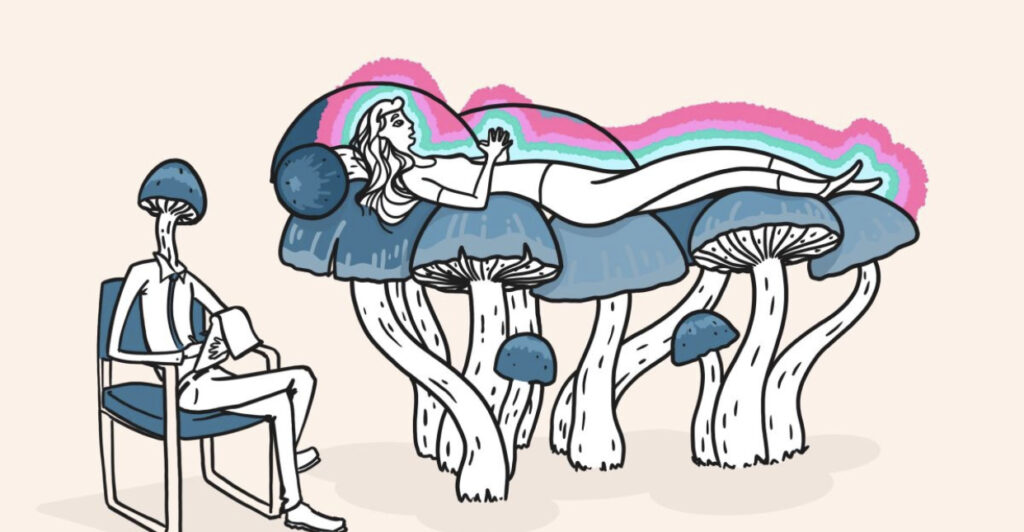Psychedelics have been used as religious, medicinal, and wellness tools in many cultures and parts of the world for centuries. But in recent years, researchers have been studying the potential healing properties of these substances for mental health conditions.
Although clinical studies on the therapeutic use of psychedelics are still underway, current research suggests that they may be able to help treat certain mental health conditions, like depression and PTSD, and improve overall mental health.
This fascinating alternative practice is known as psychedelic-assisted psychotherapy (PAP), or psychedelic therapy.
What is psychedelic therapy?
Psychedelic therapy is a technique that involves the use of psychedelic substance to aid the therapeutic process. Hallucinogenic substances have been used in holistic medicine and for spiritual practices by various cultures for thousands of years. Research on the use of psychedelics flourished during the 1950s and 1960s until such substances were made illegal in the United States. While psychedelic drugs such as LSD and psilocybin., they are believed to have the potential to treat a range of conditions including anxiety, depression, and addiction. Over the last two decades, researchers have gotten approval from authorities to conduct trials on the use of these substances to treat various conditions. For example, researchers have found that psilocybin is not only safe but that it can produce significant positive effects on well-being.
What is Microdosing?
One variation of psychedelic therapy is known as microdosing, which involves taking very small, sub-hallucinogenic doses of psychedelic substances. Proponents of microdosing suggest that even these very low doses can have beneficial health effects such as enhancing performance, increasing energy, and decreasing depression.
Our Mushrooms are grown and cultivated under the ideal conditions in appropriate mediums, harvested and well stored for retail sale.


